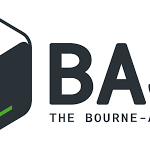In today’s fast-paced, technology-driven world, the landscape of education is rapidly evolving. Traditional classrooms are no longer the sole venues for learning, and educational institutions and businesses are increasingly turning to digital platforms to deliver engaging, personalized learning experiences. At the heart of this transformation is the development of modern educational apps—tools that empower learners, educators, and organizations to embrace a new era of education.
The Rise of Educational Apps
The rise of smartphones and tablets has revolutionized the way we access information. Educational apps have become an integral part of this revolution, offering learners of all ages access to knowledge anytime, anywhere. From K-12 students to lifelong learners, educational apps provide a flexible and convenient way to acquire new skills, deepen existing knowledge, and even earn certifications.
But what makes a modern educational app stand out? Let’s explore the key features and trends driving the development of cutting-edge educational apps today.
Key Features of Modern Educational Apps
- Personalized Learning Paths: Modern educational apps leverage data analytics and artificial intelligence (AI) to create personalized learning experiences. By analyzing user behavior and preferences, these apps can tailor content to meet the specific needs of each learner, ensuring that they progress at their own pace and receive the support they need.
- Interactive Content: Gone are the days of passive learning. Today’s educational apps are rich in interactive content, such as quizzes, simulations, and gamified elements, that engage users and make learning more enjoyable. These features not only enhance understanding but also improve retention of information.
- Social Learning: Learning is often a collaborative process, and modern educational apps recognize this by incorporating social learning features. Discussion forums, group projects, and peer-to-peer interactions foster a sense of community among learners, allowing them to share insights, ask questions, and support one another.
- Multi-Platform Accessibility: In a world where users switch between devices throughout the day, educational apps must be accessible on multiple platforms. Whether it’s a smartphone, tablet, or desktop computer, the learning experience should be seamless across all devices, allowing users to pick up where they left off without any disruption.
- Offline Access: Internet connectivity is not always guaranteed, especially in remote areas. To address this challenge, modern educational apps often include offline access to course materials, enabling learners to continue their studies even when they are not connected to the internet.
- Comprehensive Analytics: Educators and administrators need insights into learners’ progress to make informed decisions. Educational apps now come equipped with comprehensive analytics dashboards that track user engagement, performance, and completion rates. These insights are invaluable for improving course content and delivery methods.
Trends Shaping Educational App Development
- AI and Machine Learning: Artificial intelligence and machine learning are at the forefront of educational app development. These technologies enable the creation of adaptive learning systems that adjust content in real-time based on a learner’s performance. AI-driven chatbots and virtual tutors also provide instant support, enhancing the learning experience.
- Microlearning: As attention spans shorten, microlearning has emerged as a popular trend in educational apps. This approach breaks down complex topics into bite-sized, easily digestible modules that learners can complete in short sessions. Microlearning is particularly effective for busy professionals and students who need to fit learning into their hectic schedules.
- Virtual and Augmented Reality (VR/AR): VR and AR are transforming the way we experience education. These immersive technologies allow learners to explore virtual environments, conduct experiments, and visualize abstract concepts in ways that were previously impossible. Educational apps that incorporate VR/AR provide a truly hands-on learning experience.
- Gamification: Gamification is the application of game design elements in non-gaming contexts, and it’s a powerful tool for increasing learner engagement. By incorporating elements like points, badges, leaderboards, and challenges, educational apps can motivate learners to achieve their goals while making the learning process fun and rewarding.
- Lifelong Learning: The concept of lifelong learning is gaining momentum as people recognize the need to continually update their skills in a rapidly changing world. Educational apps are playing a crucial role in this trend by offering courses and certifications that cater to learners at all stages of their careers, from entry-level to advanced professionals.
Conclusion
The development of modern educational apps is a dynamic and exciting field that is reshaping the way we learn. As technology continues to advance, these apps will become even more sophisticated, offering new ways to engage learners and improve educational outcomes. Whether you’re an educator looking to enhance your teaching methods, a business aiming to upskill your workforce, or a learner seeking new knowledge, educational apps are the key to unlocking the future of learning.
At Ro Endeavors, we specialize in developing innovative educational apps that meet the diverse needs of today’s learners. Our team of experts is dedicated to creating engaging, user-friendly platforms that deliver results. Contact us today to learn how we can help you transform your educational vision into reality.



